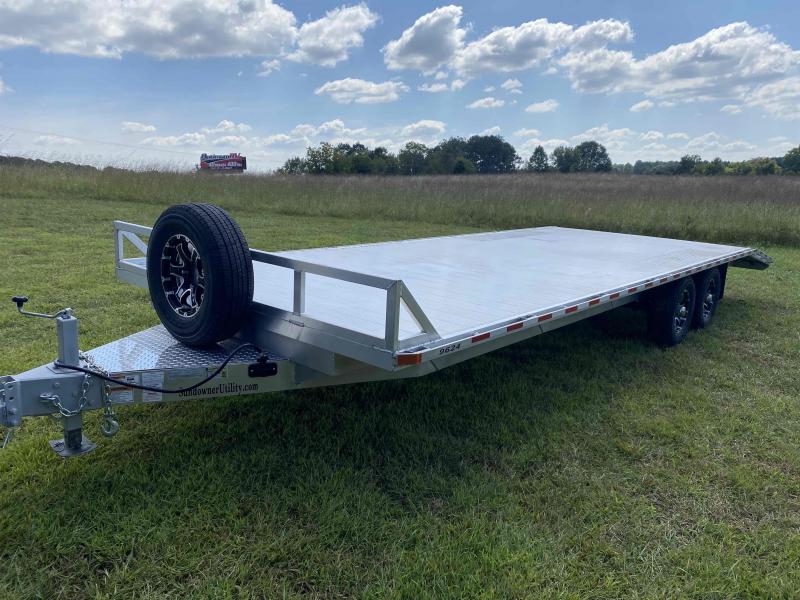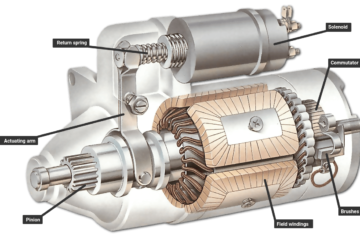Are you planning a road trip or moving cross-country and need to move your car? Choosing the right car hauling trailer is essential for keeping your vehicle safe and ensuring a smooth ride. With so many trailer options available, it can be tricky to know which one is best for your needs.
This guide will help you understand the different types of car trailers, what to look for when picking one, and how to make sure your car is secure during transport. We’ll explore the various trailer types, consider important factors like weight and size, and offer practical tips to make your choice easier.
By the end of this article, you’ll know exactly what you need to safely and efficiently haul your car.
Consider the Size of Your Vehicle
Before you pick a trailer, think about your car’s size. Not all trailers fit all vehicles, so size matters a lot.
Measure your car’s length, width, and height. Make sure the trailer you choose can accommodate these dimensions comfortably. Trailers usually have size specifications, so check these before making a decision. This will ensure your car fits securely without any unexpected surprises on the road.
Think about the weight of your vehicle too. Some trailers have a maximum weight limit. Exceeding this can be dangerous as it might cause the trailer to become unstable or put too much strain on your towing vehicle. Knowing your car’s weight helps to choose a trailer that can handle the load safely.
Checking Trailer Weight Limits
Understanding weight limits is crucial to safely hauling your car. Each trailer type has a specific weight capacity that you need to respect.
The Gross Vehicle Weight Rating (GVWR) tells you the maximum weight a trailer can handle, including the car and the trailer itself. Always check this limit before choosing a trailer to avoid overloading it. Overloading can lead to accidents, increased wear and tear, or damage to your car.
Your towing car also has a weight limit. Known as the Towing Capacity, this is the maximum weight your vehicle can safely pull. If the trailer and your car exceed this limit, it could damage your towing car’s engine or brakes, leading to costly repairs or accidents.
Importance of Towing Vehicle
Choosing the right towing vehicle is as important as picking the trailer. Not every vehicle is equipped to tow a car safely.
First, check your vehicle’s owner’s manual. It provides essential information about the towing capacity and other specifications. Knowing these details helps you understand whether your vehicle is capable of towing your car and trailer safely.
Consider the engine size and power of your towing vehicle. Larger engines can handle heavier loads more effectively. This doesn’t mean smaller cars can’t tow, but they may struggle with larger trailers or heavy cars, affecting performance and safety.
Finally, look at the brakes. The towing vehicle should have strong brakes to handle the increased weight. Some trailers come with their own braking systems, which help distribute the braking power and reduce stress on your towing car’s brakes.
Safety Features to Look For
Safety should always be your top priority when hauling a car. Look for trailers equipped with essential safety features.
Braking Systems are crucial for controlling the trailer, especially when driving downhill or stopping suddenly. Some trailers have electric brakes that work with your towing vehicle’s brake system, providing extra control.
Safety Chains are a backup in case the trailer hitch fails. They connect the trailer to the towing vehicle, preventing it from separating. Ensure they are strong and securely fastened before hitting the road.
Tire Quality is often overlooked but vital for safe travel. Check the trailer’s tires for wear and tear and make sure they are properly inflated. Good tires provide better stability and reduce the risk of blowouts.
Trailer sway control is an important feature that helps maintain stability by reducing the side-to-side motion of the trailer, especially during high winds or when overtaking large vehicles.
Maintenance for Your Trailer
Maintaining your trailer ensures it’s always in top condition. Regular checks can prevent issues and extend its lifespan.
Check the Brakes and Lights regularly. Ensure the brakes are functioning properly and that all lights, including indicators and brake lights, are working. These features are crucial for communication with other drivers on the road.
Inspect the Hitch and Coupling mechanism for any signs of wear or damage. This is the connection point between your trailer and towing vehicle, so it needs to be secure and in good condition.
Perform routine Tire Checks. Look for signs of wear, punctures, or low air pressure. Keeping your tires in good shape improves fuel efficiency and ensures a smoother ride.
Legal Requirements and Permits
Before you hit the road, check local laws and regulations regarding car hauling.
Some areas require special permits for trailers above a certain size or weight. Not having the proper documentation can result in fines or penalties, so it’s worth doing a little research before setting off.
Ensure your cargo trailer for rent meets all Safety Standards. This includes having functioning lights, brakes, and safety chains. Compliance with these regulations isn’t just about avoiding fines; it’s about keeping you and others safe on the road.
Costs Involved in Car Hauling
Understanding the costs involved in car hauling helps you budget accordingly.
First, consider the cost of cargo trailers for rent. Renting can be more cost-effective if you’re only hauling occasionally. However, frequent hauls might justify purchasing your own trailer.
Factor in the cost of Fuel. Towing a trailer usually increases fuel consumption, so it’s wise to plan for this additional expense. Calculate the distance and estimate fuel costs to avoid surprises.
Lastly, account for any Permits and Insurance required. These might not be significant, but failing to budget for them could affect your overall costs. Having a clear understanding of all expenses helps you plan your finances more effectively.
Choose the Best Car Hauling Trailer
Choosing the right car hauling trailer is an important decision that affects safety, convenience, and cost. By understanding the different types of trailers, considering your car’s size and weight, and ensuring all legal requirements are met, you set yourself up for success.
Remember the significance of maintaining your trailer and avoiding common mistakes to ensure smooth and safe journeys. For those ready to explore further, consult professional services or join online forums dedicated to car hauling enthusiasts.
For more helpful tips, check out the rest of our site today.




